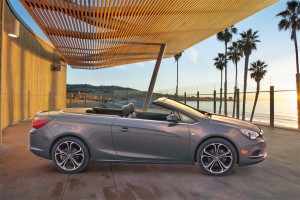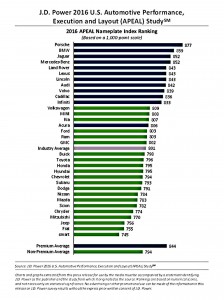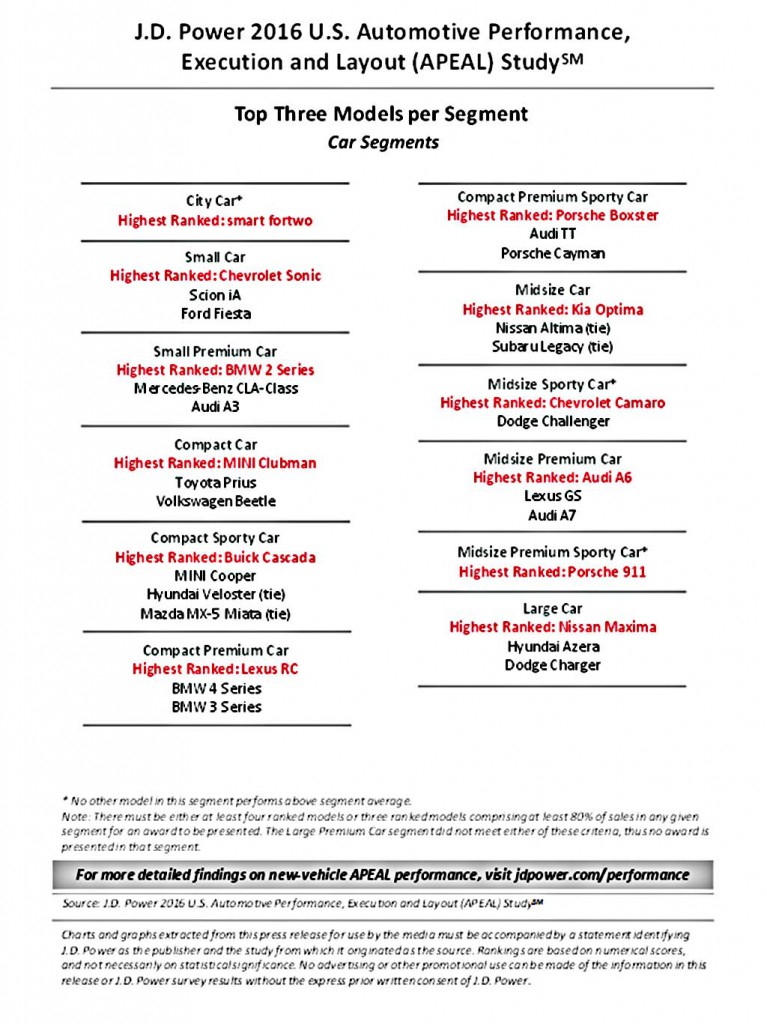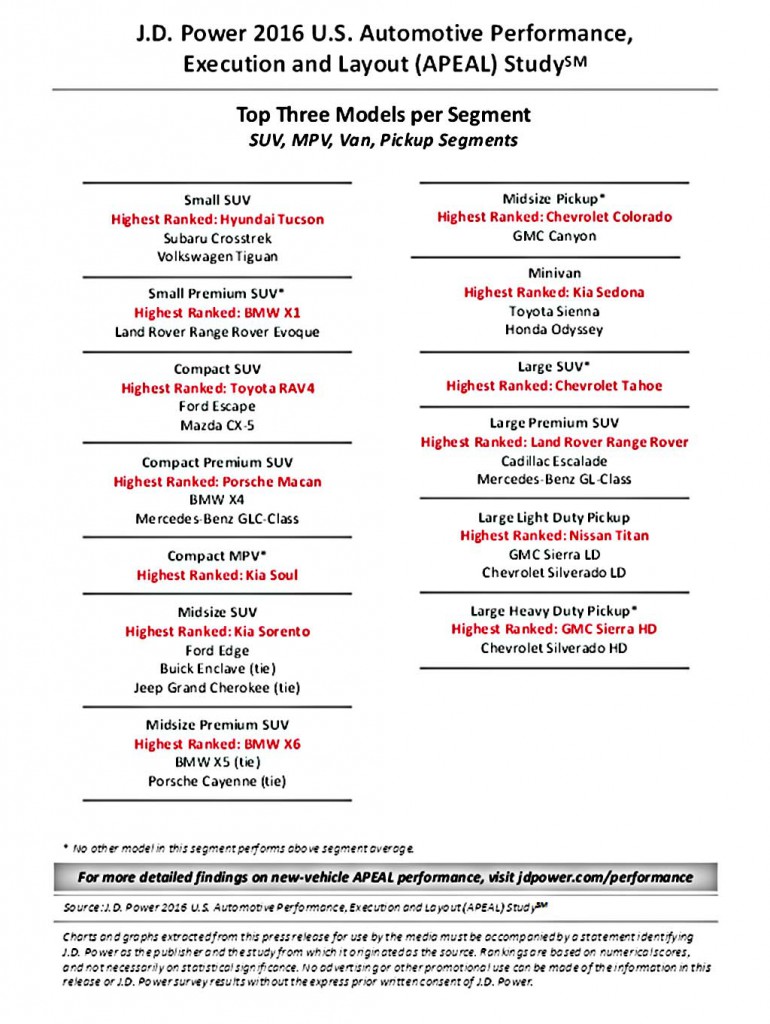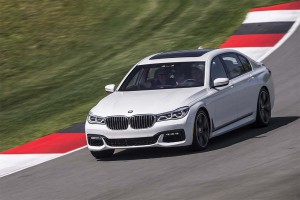
BMW's new 750i is expected to bolster the company's sales, but it's also improving its image with buyers.
New vehicle buyers have come to expect – and appreciate – the latest in high-tech safety systems. And those manufacturers who offer such technologies as blind-spot detection and forward collision warning scored especially well in the latest J.D. Power APEAL study.
Designed to go beyond traditional quality and reliability numbers, APEAL probes buyers about what features they find most exciting – and which are likely to get them back into showrooms to buy the same model or brand in the future. The results of the 2016 study show European brands such as Porsche, BMW and Jaguar, that offers the broadest suites of safety gear coming out on top.
“Technology-enabled safety features help drivers feel more comfortable and confident while driving their vehicles,” said Renee Stephens, vice president of U.S. automotive quality at J.D. Power.
Ironically, while consumers are clearly being drawn to advanced technologies like automatic emergency braking, or AEB, they also find flaw with digital systems – though more frequently the high-tech infotainment systems that have become an industry norm. Such technologies were, collectively, the single largest source of complaints in another Power study, the annual Initial Quality Survey released last month.
Many of the latest safety systems remain optional in all but the most expensive vehicles. In the latest APEAL study, the 41% of owners whose vehicles equipped with blind spot monitoring rated their vehicles higher than in the same vehicle without that feature. (They gave their vehicles a score of 821 compared to 787 for the same model without BLIS.)
Similarly, vehicles with collision avoidance technology averaged scored of 828 compared to 790 for the same models without that technology.
Manufacturers are clearly reading consumer sentiment. More and more products are being offered with various advanced safety technology. And, even on those models where the equipment is an option, automakers are frequently packaging suites of safety systems – such as blind-spot detection and forward collision warning – at reduced prices.
(J.D. Power study finds 45 million vehicles on U.S. roads with unrepaired recalls. For more, Click Here.)
Toyota and its luxury arm Lexus, for example, charge less than $1,000 for some optional safety packages.
Expect to see that trend continue, said Stephens.
“These features are also ‘gateway technologies’ to autonomous driving capabilities, so the continued level of consumer interest in them will be a critical metric to watch as the industry evolves toward including more automation in new vehicles,” she explained.
Unfortunately, some technologies continue to give consumers “nightmares,” Power found, especially balky navigation systems. In fact, navi tech ranked lowest among vehicle attributes for “usefulness” and “ease of use.”
(Click Here for more J.D. Power news.)
Another area that consumers were particularly pleased with was fuel economy, with scores in the 2016 APEAL study rising 14 points compared to last year’s results.
From a brand standpoint, Porsche ranked tops in the 2016 APEAL study for the 12th consecutive year, with a score of 877, BMW was second, at 859. It was followed, in order, by Jaguar, Mercedes-Benz, Land Rover, Lexus and Lincoln.
Among non-premium brands, Volkswagen topped the list with a score of 809, followed by Kia, Ford, Ram and GMC.
The APEAL results might be particularly appealing to Smart, the microcar maker lagging in last place with a score of 745. Moving up the list, it was followed by Fiat, Jeep, Mitsubishi and Chrysler in the bottom five.
(New study names customers’ “ideal vehicles.” Click Here to see why Tesla, GMC, Volvo and Subaru come out on top.)
General Motors – which also did well in the recent Power IQS study, had the most individual segment leaders, six in all, including the Buick Cascada, the Chevrolet Camaro and the GMC Sierra HD. Korean siblings Hyundai and Kia had five segment winners, while BMW and VW each had four.

